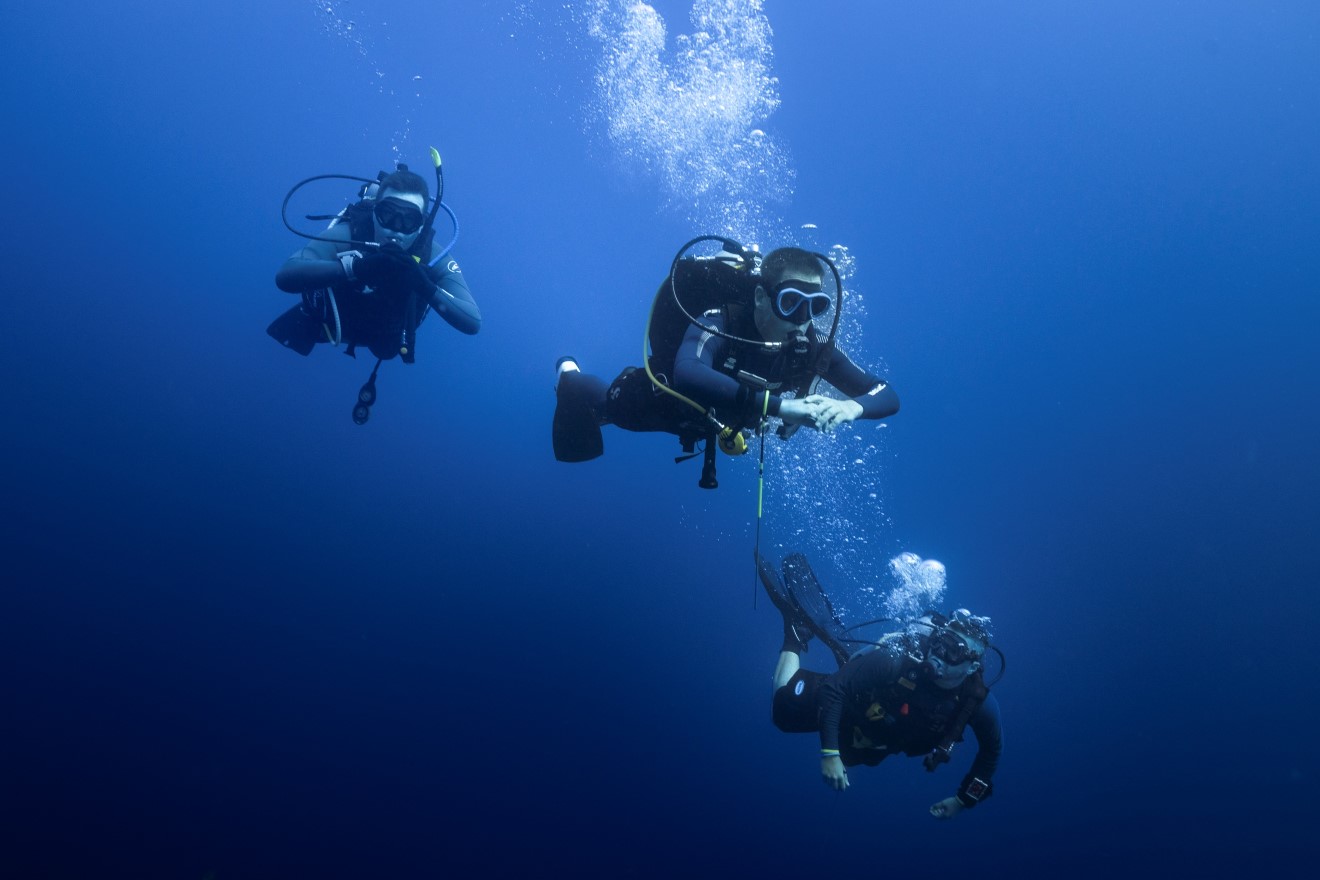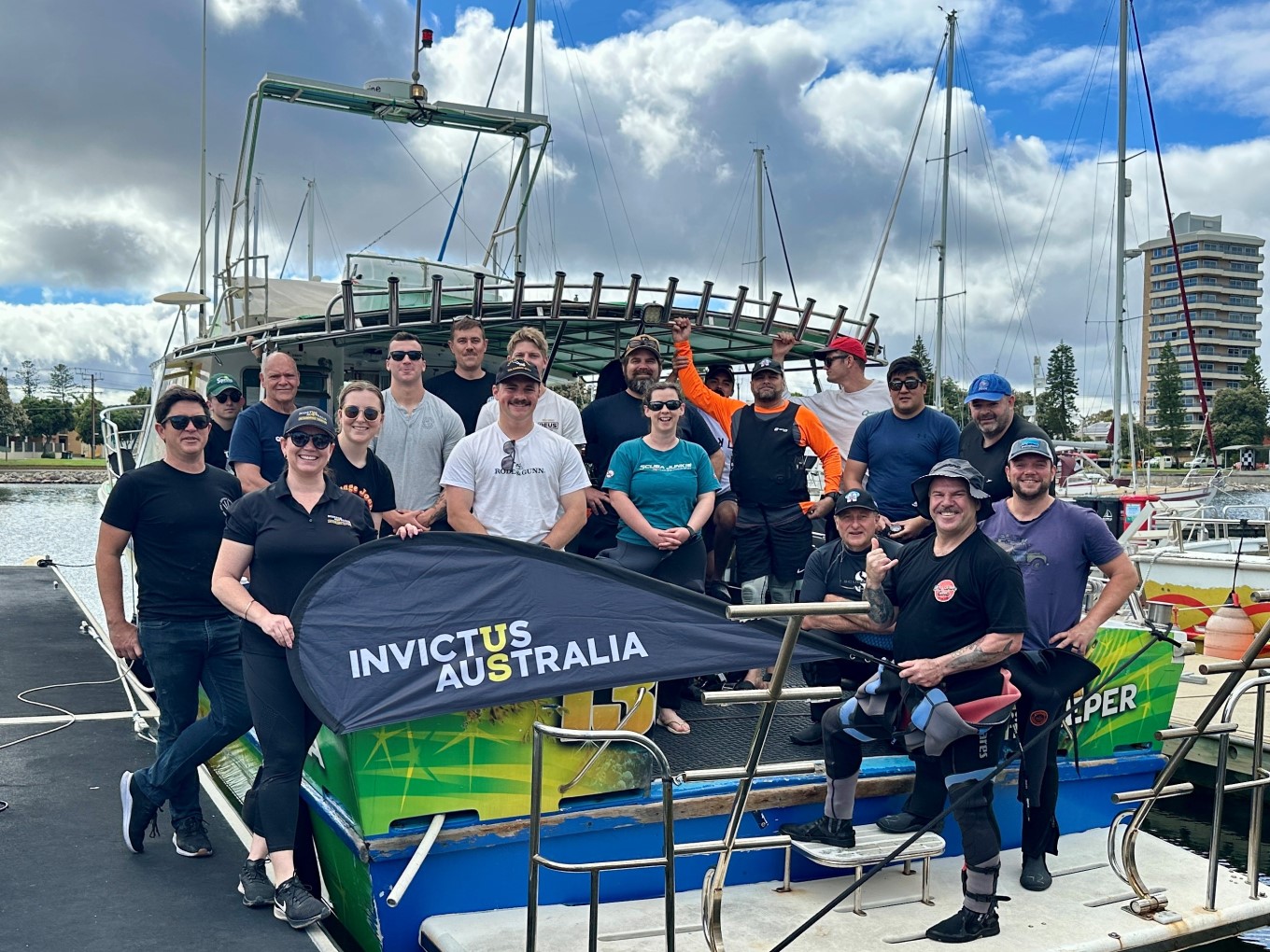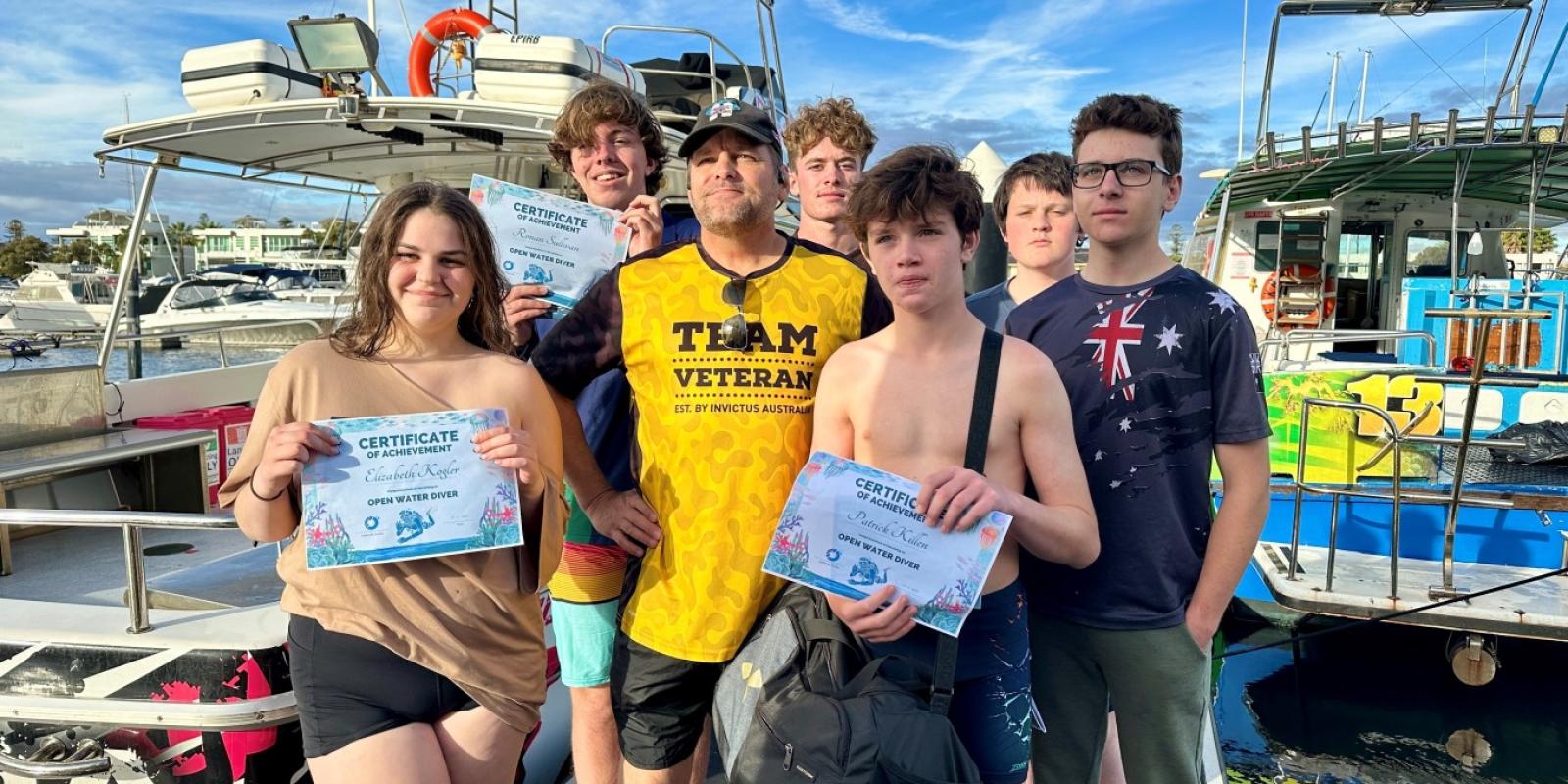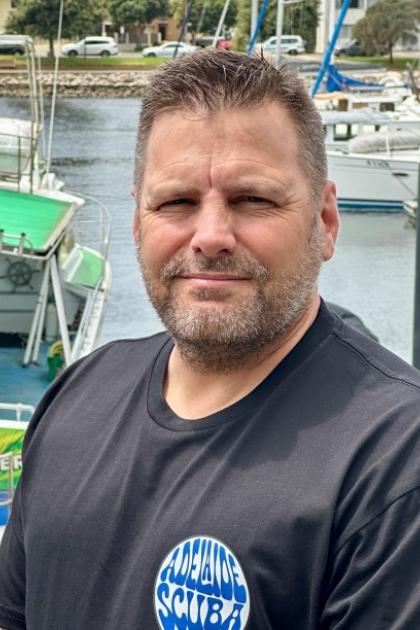Underwater connections

The Veterans Dive Initiative is encouraging former and serving personnel – and their kids – to take the plunge.
By the time retired Major Tim Prier transitioned out of the Australian Army, his body had fallen to pieces – joints, shoulders, knees, back – ‘all buggered’. ‘In 5 years I went from running marathons to chronic pain and now walking with a stick,’ Tim says. His operational experience with the British Army in Bosnia, Iraq, Afghanistan and Northern Ireland had taken a heavy toll.
But Tim found an alternative to powerful, addictive pain killers: ‘I get great pain relief from diving – as soon as I enter the water, the pain disappears. All the weight is lifted off my body, the tinnitus disappears too – it’s amazing.’
Even before he separated from the Army 2 years ago, the qualified Dive Master was spreading the gospel of deep water in the ranks. ‘The huge mental health benefits of diving have been proved in many studies,’ Tim explains. ‘It focuses your mind, you forget about whatever is going on in your world because you are so focused on what you’re doing.
‘While I was still serving, I took advantage of my position and used that to drive adventure training [diving and sky diving] within the unit,’ Tim says. Courses and dive days followed, and soon diving was the talk of the 1st Armoured Regiment.

Upon becoming a civilian, and with his former regiment dispersed, Tim turned his attention to ex-serving members and founded the Veterans Dive Initiative. Once a month, the Initiative runs a Veteran Dive Day. The South Australian branch of Invictus Australia has come on board to handle promotion, PR and finances. ‘And everything we do is made possible through the incredible generosity of Lissi Whyte, owner of Adelaide Scuba,’ Tim adds emphatically.
When 2 boats are in use, a dive day involves up to 27 qualified participants diving twice. All the equipment hire, the boats and instruction are free, courtesy of Adelaide Scuba [Self-Contained Underwater Breathing Apparatus]. The veterans are only asked for a donation of $40 to contribute to the costs of the online learning and certification for future training opportunities.
In May, the Initiative took 8 young children of serving and ex-serving ADF members through an open water diving course. ‘Too often, the children of veterans are overlooked despite being deeply impacted by their parents’ service,’ Tim reflects. ‘Having lived both as a child of a serviceman and later as a veteran parent myself, I’ve seen first-hand how military life – long separations, missed milestones, disrupted routines – affects the whole family.’

For Elizabeth Kogler, whose parents are serving members, the opportunity came unexpectedly. ‘My mum saw the course advertised on Facebook and signed me up,’ Elizabeth said. ‘I didn’t think I’d ever actually be able to Scuba dive, but when this came up, I thought it’d be a really cool experience.’
The course kicked off with a full day of theory and pool training. Elizabeth admitted the e-learning component was challenging: ‘The e-learning was a bit difficult because there was a lot of reading, but the physical training was really good.’ At Port Noarlunga Jetty conditions were tough, but the young divers adapted quickly. ‘It was weird at first, because when I’d go underwater I’d think, “I need to go up and get air”, but you get used to it,’ Elizabeth said.
The final day was a test of endurance during a rough-seas boat dive, but the team’s resilience shone through and all the students – except a couple with ear issues – successfully became certified PADI (Professional Association of Diving Instructors) open water divers.
Planning is now under way for a parent-child course: ‘The idea being to give parents who’ve returned from operations an opportunity to form that connection by training them together, so that they can dive together in future,’ says Tim.
The Veteran Dive Initiative is preparing the very first veterans’ course for those interested in learning how to dive and gaining their PADI qualification, and greater plans are afoot. The team is looking at expanding interstate and developing a tailored course for veterans with a disability.

But Tim’s ultimate aim is to give fellow veterans the chance to connect while having fun:
‘There are so many veterans out there who are isolated and on their own. And there are organisations who say to them: “come and talk about your problems”. But there are a lot of veterans who just don’t want to do that. However, if you give them an activity such as this, that’s maybe when they’ll start to open up, because they’re not under pressure to talk – because they’re here for the diving.’
For information about upcoming dive days, visit the Invictus Australia – South Australia Facebook group. Some material used in this article is courtesy of the Department of Defence.